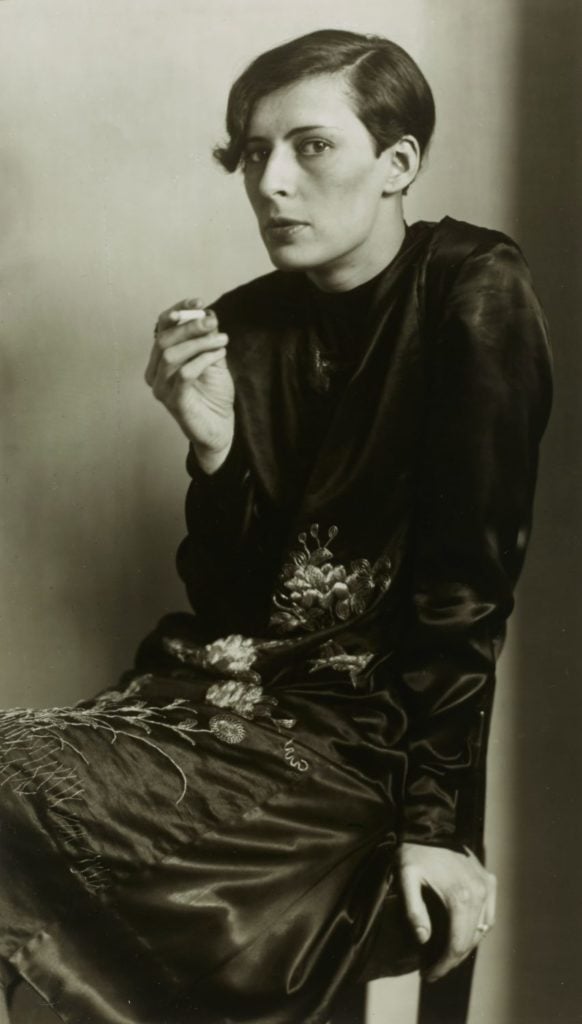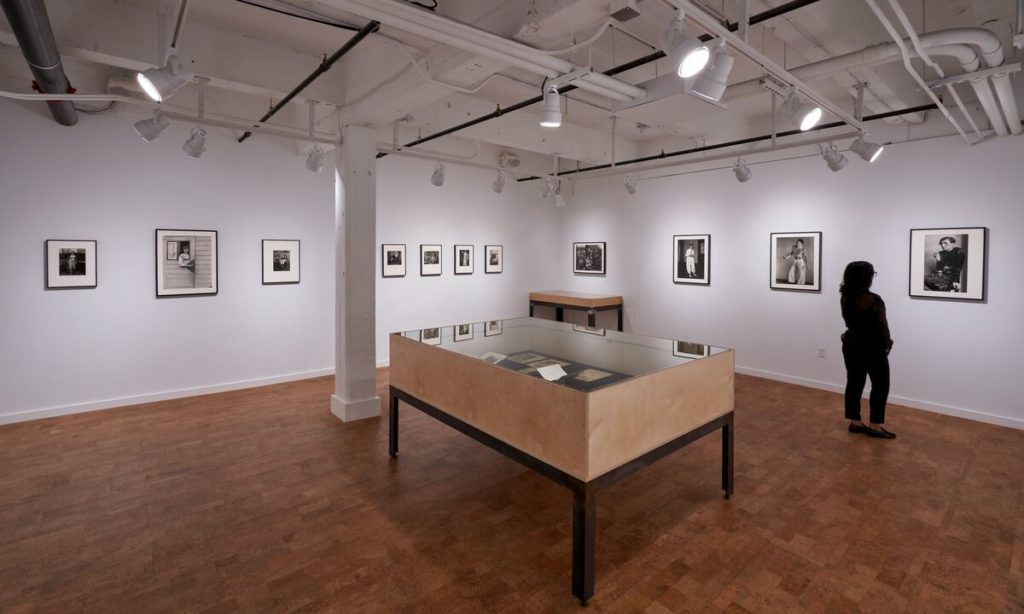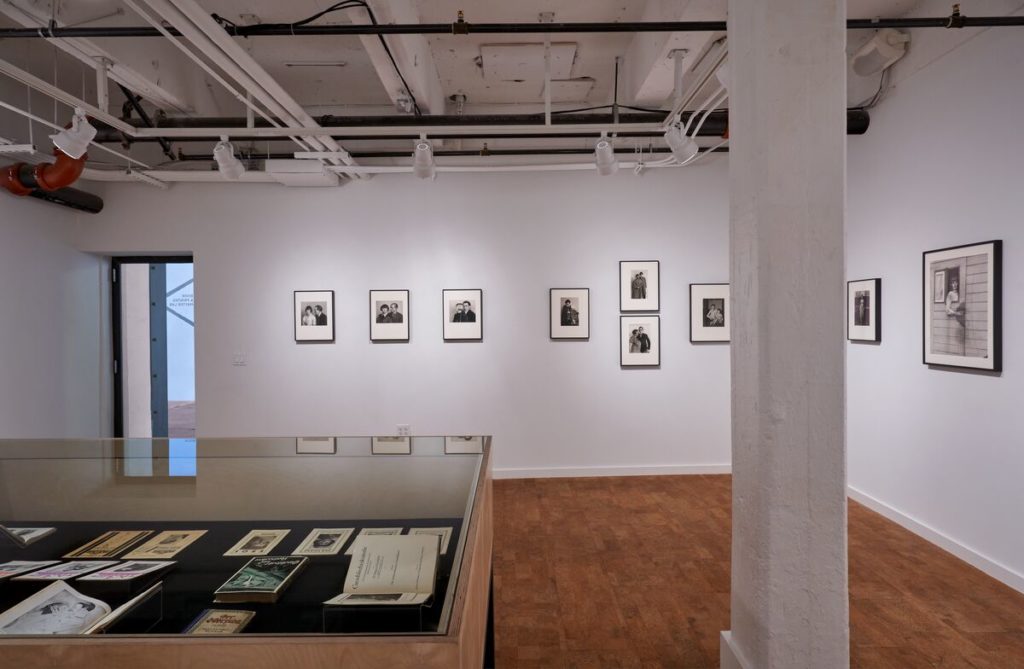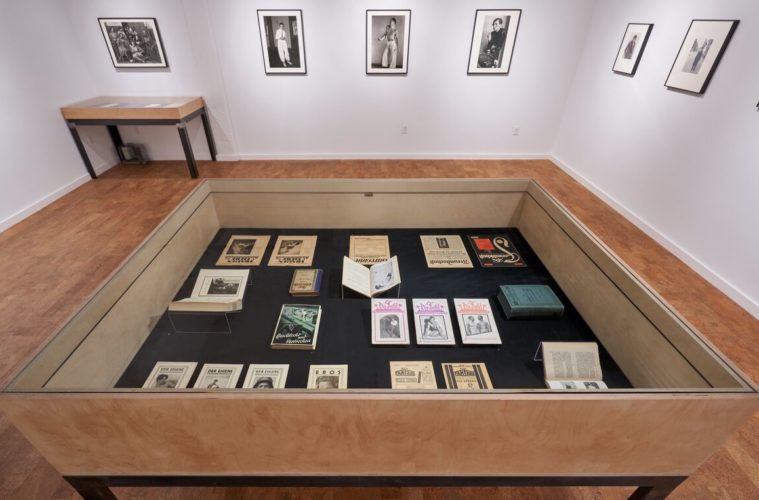“Reality is not a given: it has to be continually sought out, held.” — John Berger
Heralded as Germany’s ur-modernist photographer, August Sander (1876-1964) documented a world that was changing in spite of itself. Having recently acquired Sander’s estate, Hauser & Wirth Los Angeles is showing the first Sander solo exhibition in L.A. in over a decade in New Women, New Men, and New Identities. The small but keenly satisfying show evinces the most significant of Sander’s work, made in the complex milieu of Weimar Germany — a fertile, banquet of an era for the arts, amid political and cultural shifts that would forever change and devastate the world.
Like an anthropologist, Sander was curious about life as it was lived, interested in humanity and its story as told in the faces and situations of his subjects. It’s a story that includes real people and isn’t limited to the scrubbed-clean, idealized views that have remained since as far back as we have record. In the show, defiant, bold faces stare back from the past, bathed in light, without equivocation. Again like an anthropologist, in his art Sander managed to avoid sentimentality; his photography was also in service to the cataloging of societal types of the era.
Sander’s subjects certainly were from all walks of German society: cleaning women, bricklayers, Jews and Nazis alike. But during a time of intolerance and cultural rigidity, before the “counterculture” really had its revolution, Sander’s eye was often trained on figures from the fringes, the disenfranchised, the proletariat and peasant, the worker and the artist all bearing equal importance. In a favorite from the series at Hauser & Wirth, “Raoul Hausmann as Dancer” (1929), a shirtless Hausmann (an artist associated with Berlin Dada) has taken an impassioned contrapposto step in a performance. His torso and right arm writhe as he tosses his head back, in a pose that’s so physical you think he’ll keep on moving. The curling of his lips in a badass sneer, his monocle, his beret and lack of shoes, all manifestly redolent of a new zeitgeist.

August Sander, Sekretärin beim Westdeutschen Rundfunk in Köln (Secretary at West German Radio in Cologne), 1931. Gelatin silver print, 18 x 24 cm. (Copyright Die Photographische Sammlung/SK Stiftung Kultur – August Sander Archive, Cologne – ARS, New York, 2020. Courtesy August Sander Family Collection and Hauser & Wirth)
These and other queer and androgynous visages populate the intimate Book Lab space in a flat-out stunning show of near-perfect display of portraits of circus workers, lost souls, and beautiful kooks that could be your loft-dwelling neighbors, acknowledging the reality of social life and the interdependence of various and disparate communities. It’s difficult to fully imagine the world that Sander lived in, but in their humane objectivity, his photographs show parts of society just as they were, with no editorial bent. The expressions on the faces read as free in spirit, or about to break free from waiting. Defiant, they stir with life and in turn, they stir the viewer.
Sander’s impartiality and breadth of subjects are significant in the context of how the fascists of his time did their cataloging of society, and how history mainly tells the stories of the privileged. Sander did the important work of bearing witness that many in his culture failed to do. You weren’t permitted to be gay back then, or to cross-dress, to assume a new gender. Each figure in Sander’s New Women, New Men, and New Identities expresses a contingent universe that necessitates an openness to transformation, chance as well as change. For an artist like Sander, the reimagining of images entails the reimagining of an entire worldview.

Installation view, August Sander. New Women, New Men, and New Identities, Hauser & Wirth Los Angeles, 2020. (Copyright Die Photographische Sammlung / SK Stiftung Kultur – August Sander Archive, Cologne / ARS, New York, 2020. Courtesy August Sander Family Collection and Hauser & Wirth. Photo by Mario de Lopez)
On view at Hauser & Wirth Los Angeles, 901 E. 3rd St., downtown, through April 12. hauserwirth.com/hauser-wirth-exhibitions/27109-august-sander-new-women-new-men-new-identities.
The exhibition is a project of Weimar Variations, a collection of public events related to the Los Angeles Philharmonic’s month-long, citywide festival Weimar Republic: Germany 1918-1933.

Installation view, August Sander. New Women, New Men, and New Identities, Hauser & Wirth Los Angeles, 2020. (Copyright Die Photographische Sammlung / SK Stiftung Kultur – August Sander Archive, Cologne / ARS, New York, 2020. Courtesy August Sander Family Collection and Hauser & Wirth. Photo by Mario de Lopez)
Advertising disclosure: We may receive compensation for some of the links in our stories. Thank you for supporting LA Weekly and our advertisers.

